Paleoecological and Archaeological Investigations for the analysis of Socio-Cultural Strategies in the Andean Highlands
The project „Groundcheck Peru – Paleoecological and Archaeological Investigations for the analysis of Socio-Cultural Strategies in the Andean Highlands“ investigates the influence of climate fluctuations on the development of pre-Hispanic cultures in southern Peru. It builds on the research results of the joint project „Andean Transect,“ which has been conducting extensive archaeological research since 2008 with Peruvian partners in the Nasca/Palpa area in southern Peru by documenting sites from almost the entire occupation period of South America, ranging from about 8000 BC to AD 1532. This interdisciplinary geoarchaeological research is continued and expanded now.
Our previous paleoecological studies in the Andean Transect project revealed the basic patterns of Holocene climate change and its influence on pre-Hispanic settlement development in the central Andes. At the same time, it became clear that there is the potential and need to develop this study area into a reference for studying human-environment relationships in South America through more detailed analyses.
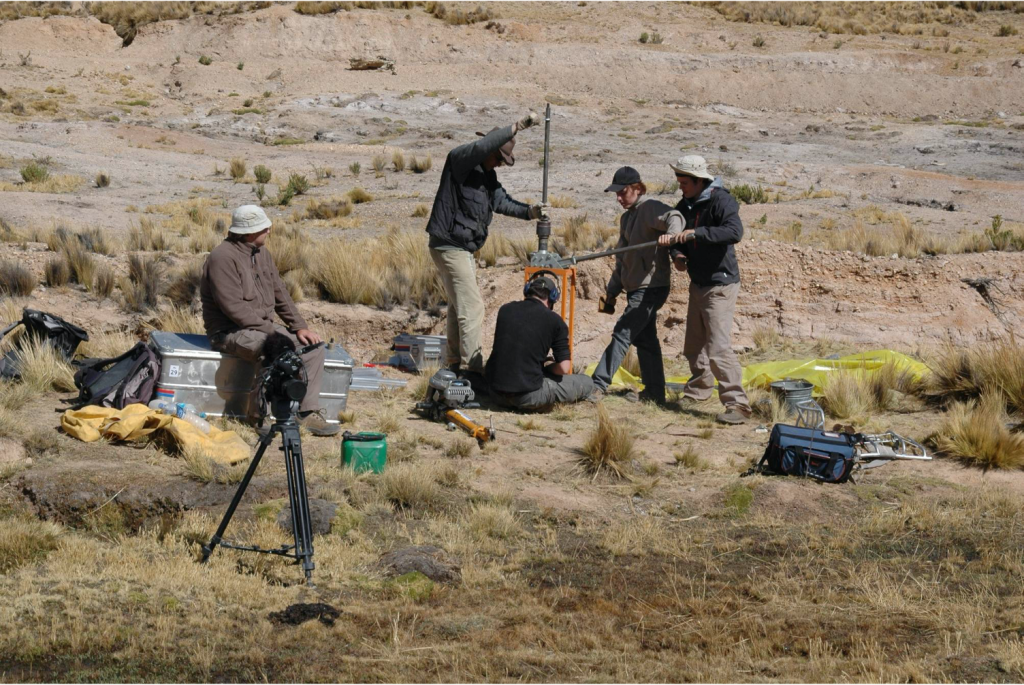
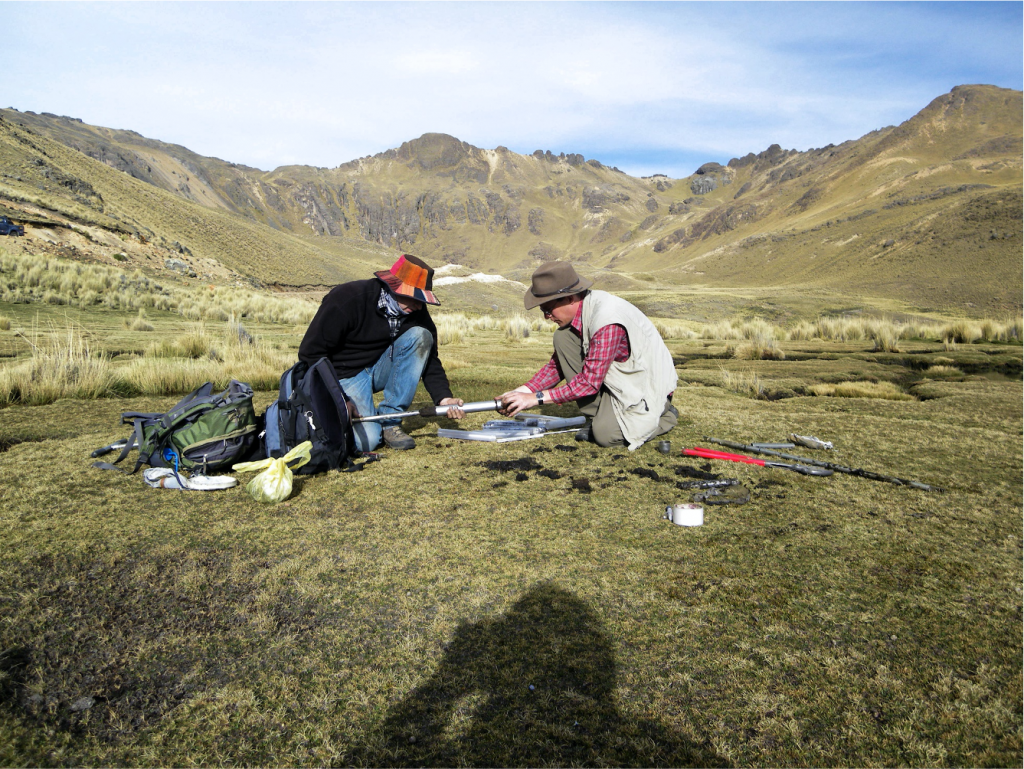
The initial focus is on the sedimentological, macrobotanical, and palynological study of climatic archives along the eastern extension of the Andean Transect. Thus, our study explores how local populations in the Andean highlands adapted to climatic changes in the past and how ecological thresholds that triggered possible migrations are defined. For the purpose of paleoenvironmental reconstruction, cushion peatlands were sampled along a precipitation gradient between the Peruvian Western Cordillera and the Lake Titicaca region. Due to their comparability across climatic gradients, high peat accumulation rates, suitability for dating, and proximity to archaeological sites, they represent an optimal climatic archive for this study.
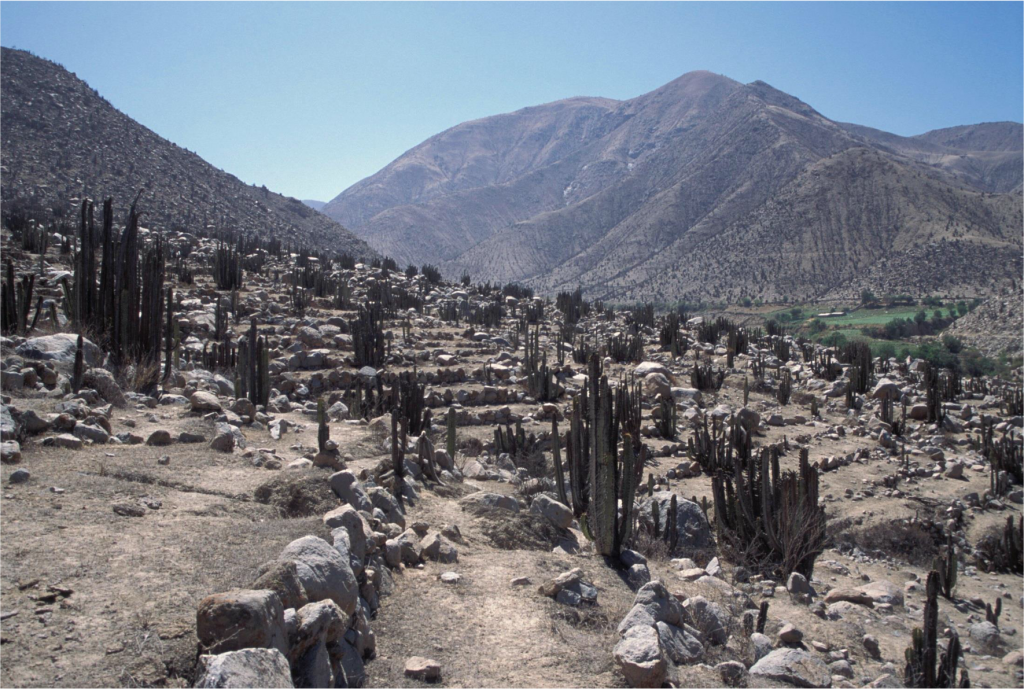
The second focus of the project is the study of agricultural terraces, which have been documented in large numbers from many different periods in the study area. Phytolith, pollen, and sediment analyses will provide information on diachronic changes in crop composition and intensity and their dependence on climate variability. This study aims to identify pre-Columbian agricultural products as a basis for reconstructing land-use history and investigating cultivation methods.
The extensive stone-built terrace complexes are located at higher elevations between 1500 and 4000 masl in different ecological zones and cover a period from the Formative Period (1700-200 BC) to the time of European arrival in AD 1532.
Combining expertise in the humanities and natural sciences in a core area of Andean cultural development that has not yet been explored with modern scientific methods enables us to obtain new insights into the development of ancient South American societies. A systematic evaluation of this information offers great potential for scientific connection and broad interdisciplinary and international cooperation.
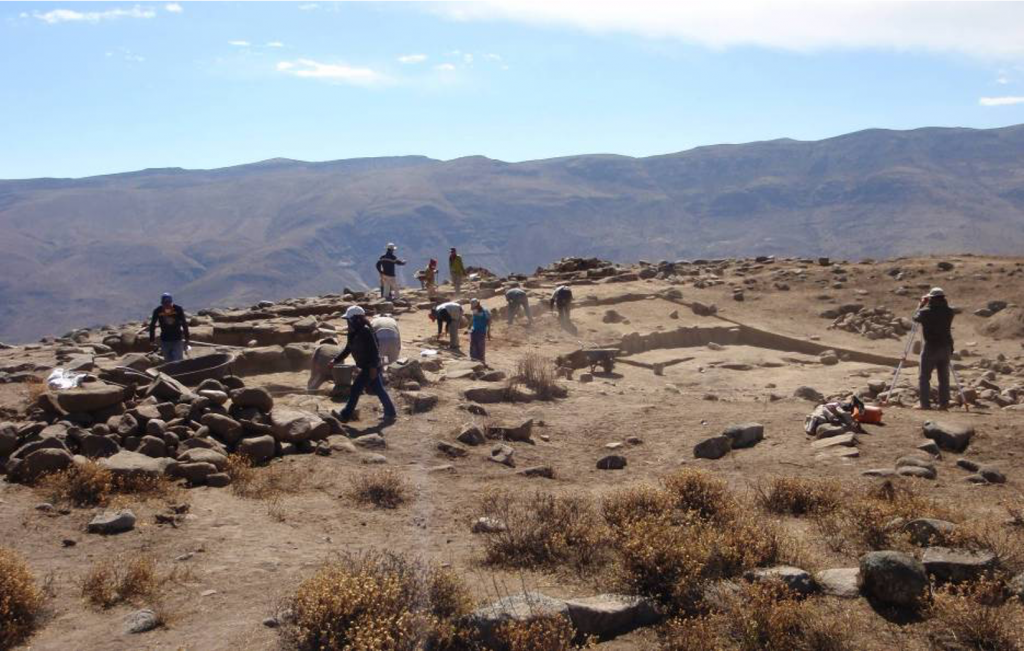
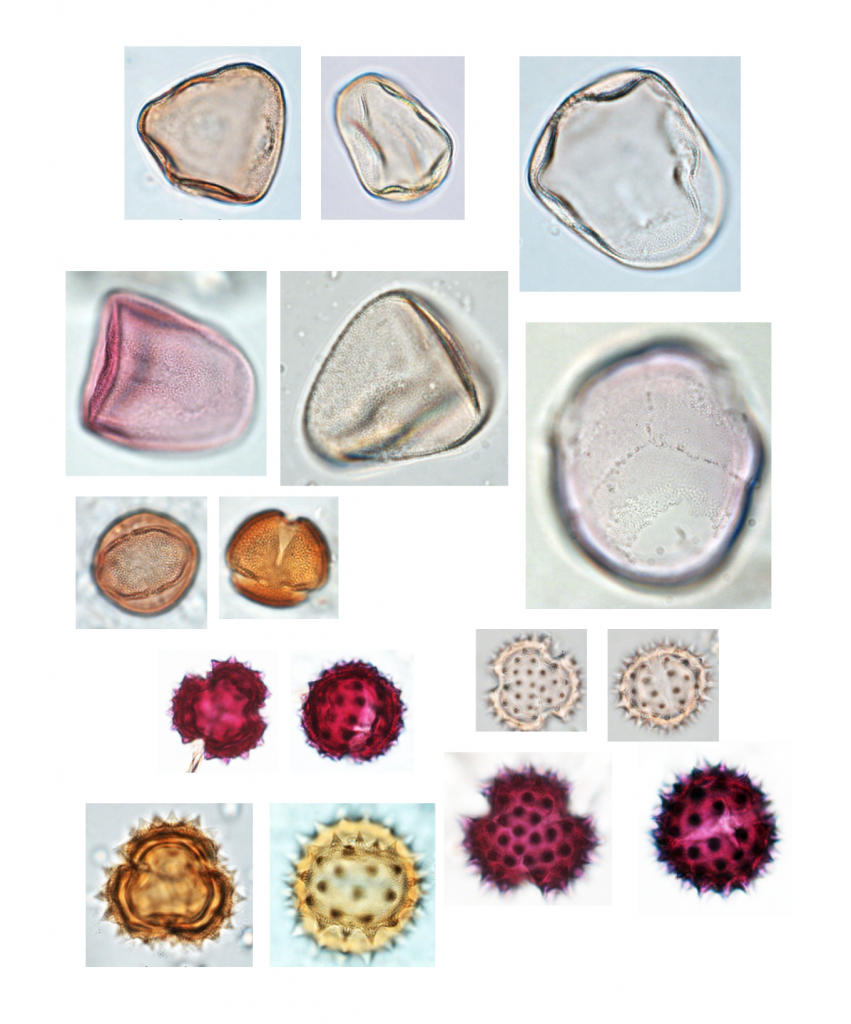
Project members and partners
Markus Reindel (Projectmanagement)
Prof. Dr. Markus Reindel (German Archaeological Institute, Comission for Archaeology of Non-European Cultures, Bonn)
Lic. Johny Isla (Ministerio de Cultura, Dirección Desconcentrada de Cultura de Ica, Peru)
Dr. Karsten Schittek (Institute of Geography Education, University of Cologne)
Dr. Bertil Mächtle (Institute of Geography, Heidelberg University)
Dr. Christian Mader (University of Bonn, Bonn Center for Dependency and Slavery Studies)
Prof. Dr. Julia Meister (Institute of Geography and Geology, University of Würzburg,)
Dr. Ronny Friedrich (Curt-Engelhorn-Centre of Archaeometry, Mannheim)
Prof. Dr. Sönke Szidat (Department of Chemistry and Biochemistry and Pharmaceutical Sciences, University of Bern)
Dr. Andreas Lücke (Institute of Bio- and Geosciences, Jülich Research Centre)
